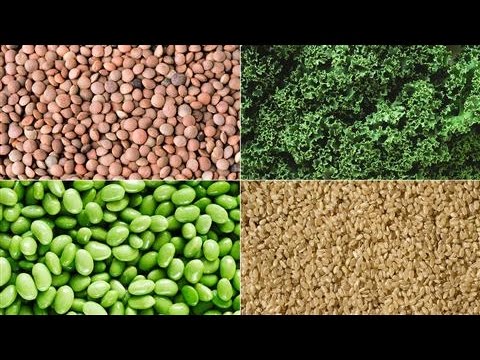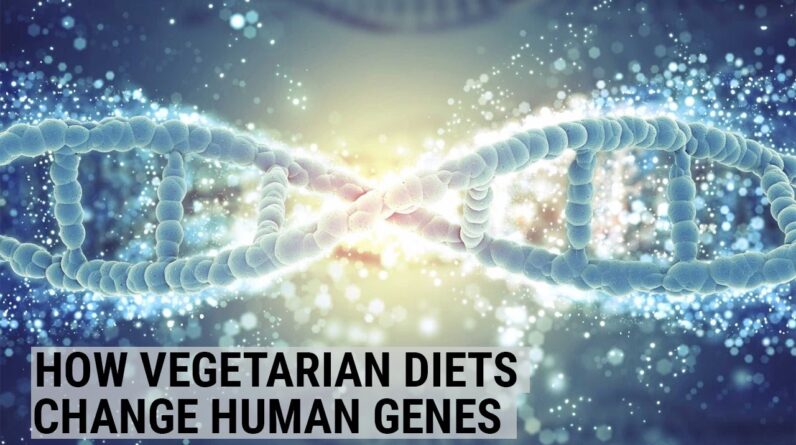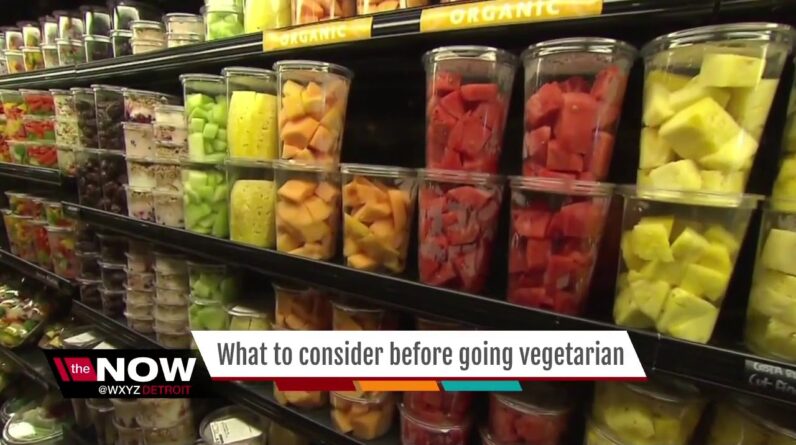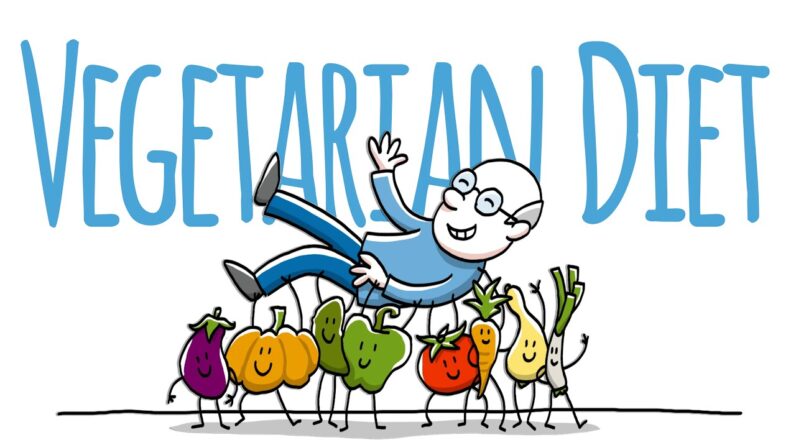
Are you searching for a diet that can lower your risk of developing certain types of cancer? Look no further! A recent study has revealed that following a vegetarian diet, which includes some fish, may be optimal for preventing colorectal cancer, the second deadliest cancer in the U.S. Dr. Michael Orlick, the lead researcher of the study, explains that vegetarians, broadly defined, have a 22% lower chance of developing colorectal cancer compared to non-vegetarians. Furthermore, the study found that pesco-vegetarians, who eat fish but no other meats, had the lowest risk of all, with a 43% relative reduction in risk. While the reasons behind this are not entirely clear, these results suggest that reducing or eliminating red meat from your diet and increasing consumption of healthy, plant-based foods could be beneficial in preventing colorectal cancer. Although further research is needed to determine the exact role of fish in this diet, it is suggested that incorporating a variety of factors, such as meat avoidance and increased whole plant consumption, may contribute to reducing the risk of developing cancer. So why not consider making some changes to your diet and add some fish and more fruits and vegetables – it just might boost your protection against colorectal cancer!
Benefits of a Vegetarian Diet
Reduced risk for colorectal cancers
Colorectal cancer is the second most deadly cancer in the US, but a recent study has shown that a vegetarian diet, including some fish, may lower the risk for developing this type of cancer. The study, which followed over 77,000 people for a duration of seven years, compared the risk of colorectal cancer between vegetarians and non-vegetarians. The findings of the study revealed a 22% relative reduction in risk for vegetarians compared to non-vegetarians.
Findings of the study
When looking at the specific types of vegetarians, the study found reductions in the risk of colorectal cancer for vegans, lacto-ovo vegetarians, and pesco-vegetarians. However, the results for pesco-vegetarians showed the lowest risk in the study, with a 43% relative reduction compared to non-vegetarians. It is important to note that pesco-vegetarians, who eat fish but not other meats, actually consume about the same amount of fish as non-vegetarians. The reasons behind the lower risk for pesco-vegetarians are still unclear and warrant further investigation.
Research Methodology
Duration of the study (seven years)
The study followed a large cohort of over 77,000 individuals for a duration of seven years. This extended period allowed researchers to gather comprehensive data on the dietary habits and health outcomes of the participants.
Number of participants (over 77,000)
With a sample size of over 77,000 individuals, the study had a significant number of participants, ensuring that the results would be statistically robust and representative of the population.
Comparison between vegetarians and non-vegetarians
The study compared the risk of colorectal cancer between vegetarians and non-vegetarians. This comparison allowed researchers to assess whether following a vegetarian diet has any impact on the risk of developing colorectal cancer.
Types of vegetarians included in the study
The study included several different types of vegetarians, including vegans, lacto-ovo vegetarians, and pesco-vegetarians. This diverse range of dietary habits allowed researchers to analyze the effects of different vegetarian diets on colorectal cancer risk.
Results and conclusions
The results of the study showed a significant reduction in the risk of colorectal cancer for vegetarians compared to non-vegetarians. Specifically, pesco-vegetarians had the lowest risk, with a 43% relative reduction. These findings suggest that following a vegetarian diet, which includes some fish, may be beneficial in reducing the risk of colorectal cancer.
Types of Vegetarians
Definition of vegetarian
In the context of this study, a vegetarian is broadly defined as someone who does not consume meat. However, there are different types of vegetarians with varying dietary restrictions.
Different types of vegetarians in the study
The study included vegans, lacto-ovo vegetarians, pesco-vegetarians, and semi-vegetarians. Vegans do not consume any animal products, including dairy and eggs. Lacto-ovo vegetarians exclude meat but consume dairy and eggs. Pesco-vegetarians consume fish but not other meats. Semi-vegetarians consume meat, but in smaller quantities and less frequently than non-vegetarians.
Explanation of pesco-vegetarianism
Pesco-vegetarianism is a type of vegetarianism that includes fish in the diet, while excluding other meats. Individuals who follow a pesco-vegetarian diet primarily eat plant-based foods but incorporate fish for variety and potential health benefits.
Amount of fish consumed by pesco-vegetarians
Interestingly, the study found that pesco-vegetarians consumed a similar amount of fish as non-vegetarians. This suggests that the lower risk of colorectal cancer in pesco-vegetarians may not be solely attributed to their fish consumption.
Comparison between pesco-vegetarians and other vegetarian groups
When comparing the risk of colorectal cancer among different types of vegetarians, pesco-vegetarians showed the lowest risk. However, it is important to note that the differences in risk between pesco-vegetarians and other vegetarian groups were not statistically significant within those groups. Further research is needed to better understand the potential factors contributing to the lower risk observed in pesco-vegetarians.
Lowest risk found in pesco-vegetarians
While the reasons behind the lower risk of colorectal cancer in pesco-vegetarians are still unclear, the study’s findings highlight the potential benefits of incorporating fish into a vegetarian diet. However, it is important to consider individual dietary choices and preferences when deciding on the best approach to reduce the risk of colorectal cancer.
Factors Influencing Cancer Risk

This image is property of i.ytimg.com.
Uncertainty about the role of fish in reducing cancer risk
The study’s results showed a lower risk of colorectal cancer in pesco-vegetarians compared to other vegetarian groups. However, it is not clear why pesco-vegetarians had the lowest risk, considering they consumed a similar amount of fish as non-vegetarians. More research is needed to determine the role of fish consumption in reducing cancer risk.
Other potential factors in the diet
While the study focused on the impact of vegetarian diets on colorectal cancer risk, it is important to consider other dietary factors that may influence cancer risk. The composition of the overall diet, including the consumption of fruits, vegetables, whole grains, and other plant-based foods, can also play a role in cancer prevention.
Importance of considering the overall diet composition
The study’s findings suggest that reducing or eliminating red meat and processed meat from the diet and increasing the consumption of healthy whole plant foods may be beneficial in reducing the risk of colorectal cancer. It is essential to consider the entire diet composition and make choices that promote overall health and well-being.
Comparison with Non-Vegetarians
Significant reduction in risk for vegetarians
The study found a significant 22% relative reduction in the risk of colorectal cancer for vegetarians compared to non-vegetarians. This suggests that adopting a vegetarian diet may have a protective effect against developing colorectal cancer.
Comparison between different types of vegetarians and non-vegetarians
When comparing the risk of colorectal cancer among different types of vegetarians and non-vegetarians, the study found that pesco-vegetarians had the lowest risk. However, it is important to note that the differences in risk between vegetarians and non-vegetarians were statistically significant for all types of vegetarians.
Adjustment for confounding factors
To ensure the accuracy of the results, the study adjusted for various confounding factors such as exercise and education. This adjustment helped to isolate the effects of diet and provide a more accurate assessment of the impact of vegetarian diets on colorectal cancer risk.
Overall relative reduction in risk
The findings of the study suggest that following a vegetarian diet, regardless of the specific type, can lead to a significant reduction in the risk of developing colorectal cancer. By adopting a vegetarian diet, individuals can take a proactive approach towards protecting their health.
Potential Effects on Other Cancers
Current analysis of breast cancer and prostate cancer
While the study focused on colorectal cancer, ongoing analysis is being conducted to assess the potential effects of vegetarian diets on breast cancer and prostate cancer. These future research papers will provide further insights into the impact of vegetarian diets on different types of cancers.
Upcoming follow-up papers
The study’s lead researcher and his team are currently analyzing the data on breast cancer and prostate cancer. These follow-up papers will help expand our understanding of the potential benefits of vegetarian diets in reducing the risk of these particular cancers.
Focus of future research
The findings of this study highlight the importance of further research on the relationship between diet and cancer prevention. Future studies should explore the effects of vegetarian diets on various types of cancer to provide a comprehensive understanding of their potential benefits.
Recommendations Based on the Findings
Reducing or eliminating red meat and processed meat
Based on the study’s results, it is recommended to reduce or eliminate the consumption of red meat and processed meat. These types of meat have been associated with an increased risk of colorectal cancer, and opting for plant-based alternatives can be a healthier choice.
Increasing consumption of healthy whole plant foods
The study found that the vegetarian groups, who consumed a wide variety of healthy whole plant foods, had a lower risk of colorectal cancer. Therefore, it is recommended to increase the consumption of fruits, vegetables, whole grains, legumes, and other plant-based sources of nutrients.
Role of fiber in the diet
Fiber-rich foods, such as fruits, vegetables, and whole grains, play a crucial role in maintaining a healthy digestive system and reducing the risk of colorectal cancer. Including an adequate amount of fiber in the diet is essential for overall health and well-being.
Consistency in scientific evidence
While the study’s findings contribute to the growing body of evidence on the benefits of vegetarian diets, it is important to consider all scientific evidence when making dietary choices. It is recommended to follow a well-balanced diet that aligns with individual preferences and health goals.
Uncertainty about Specific Factors
Complexity of successful diet composition
The composition of a successful diet in reducing the risk of colorectal cancer is likely to be complex, involving multiple factors. It is important to consider various dietary components and their interactions to achieve optimal health outcomes.
Multiple potential contributing factors
While the study focused on the impact of vegetarian diets on colorectal cancer risk, it is essential to recognize that there may be multiple contributing factors to cancer development. These factors can include genetic predispositions, lifestyle choices, and environmental influences.
Need for further investigation
To fully understand the relationship between diet and cancer risk, further research is needed. Future studies should explore the mechanisms behind the observed effects and investigate the potential interactions between different dietary components and lifestyle factors.
Conclusion
The findings of the study suggest a significant reduction in the risk of colorectal cancer for individuals following a vegetarian diet, including some fish. Specifically, pesco-vegetarians showed the lowest risk, which was 43% lower compared to non-vegetarians. However, more research is needed to better understand the reasons behind these findings and the potential role of fish in reducing cancer risk.
It is important to consider individual dietary choices and preferences when deciding on the best approach to reducing the risk of colorectal cancer. While a vegetarian diet that includes some fish may be beneficial, it is also essential to focus on increasing the consumption of a wide variety of healthy whole plant foods high in fiber.
The study emphasizes the importance of considering overall diet composition and making choices that promote overall health and well-being. It is recommended to reduce or eliminate red meat and processed meat from the diet and increase the consumption of plant-based foods. However, it is vital to consider the consistency of scientific evidence and seek a balanced approach based on individual needs and preferences. Continued research in this area will provide further insights into the potential benefits of vegetarian diets in cancer prevention.






